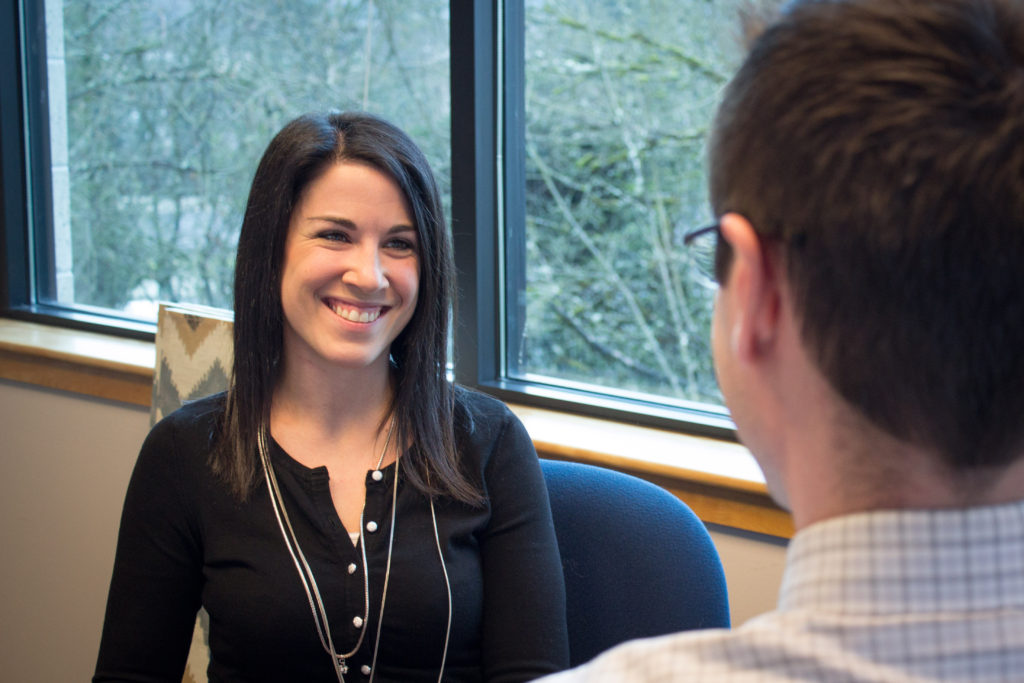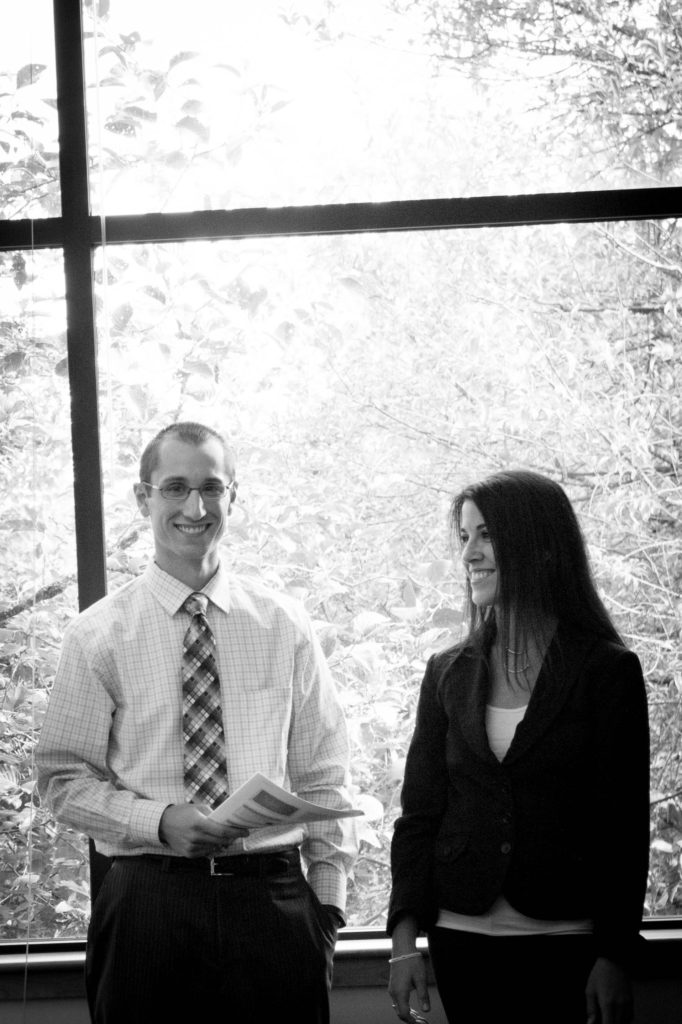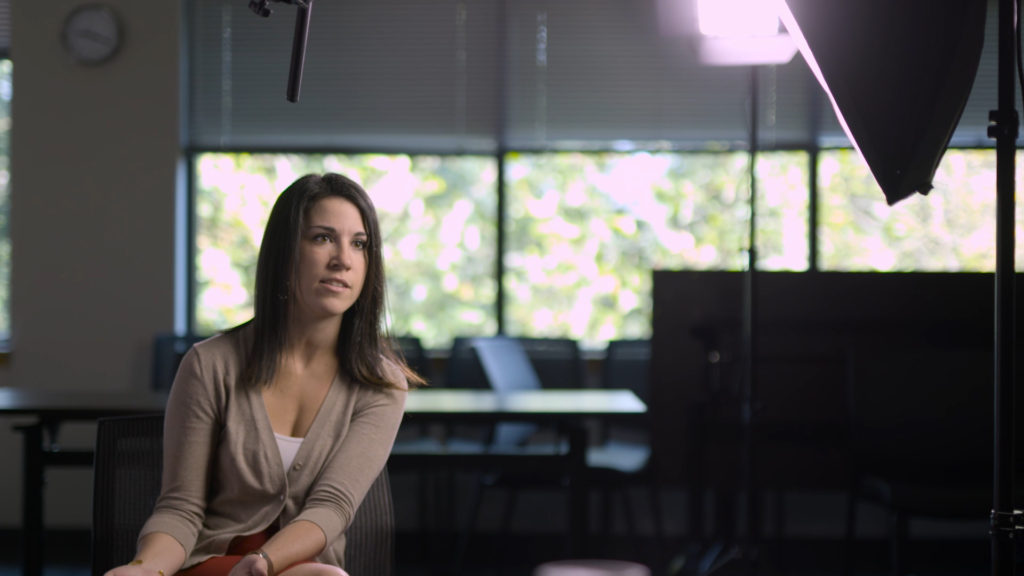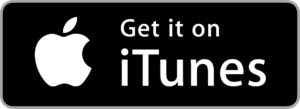Lacey Halpern, Sr. HR Business Partner at Xenium and frequent podcast guest, joins us for a special episode to discuss how she landed in the HR industry after graduating college with a psychology degree, the challenges and rewards of being a working mom, memorable and challenging moments from working in HR with a variety of organizations, her experience working with millennials, and where she finds fulfillment in her career.
Give us a review on iTunes and be entered to win a free book!
and/or
Brandon Laws: Welcome back for another episode of the HR for Small Business podcast, this is your host Brandon Laws. With me today is Lacey Halpern, she is a long time returning guest, and this is a special episode. It’s kind of a landmark, this is the 70th episode and I asked Lacey to come in because she has done about eight episodes with us.
Lacey Halpern: I think more than that.
Lacey, it’s good to have you back! I wanted to do something different for today’s episode. I thought it would be kind of fun, since people know you from the podcast, to do something that’s more about you and your opinions and your background.
I really want to start things off by asking you, when you got into school, and I think you started at Western Oregon University where I actually started as well, and finished, did you know you wanted to be in HR at that point?
Lacey Halpern: Absolutely not!
Brandon Laws: I think I have heard that quite a bit from other people who are in HR.
 Lacey Halpern: I actually don’t even know if I knew what HR was. When I worked in high school, it was for small business that didn’t have HR, so I really had no interest in doing anything at all related to business. In fact I think I even remember saying that to my parents when I was enrolling in classes, that there was not going to be one business class in any of my schedules.
Lacey Halpern: I actually don’t even know if I knew what HR was. When I worked in high school, it was for small business that didn’t have HR, so I really had no interest in doing anything at all related to business. In fact I think I even remember saying that to my parents when I was enrolling in classes, that there was not going to be one business class in any of my schedules.Brandon: So what got you there from the time you started school to sort of understanding HR to wanting to get into that profession?
Lacey: It was sort of an accident. I went to Western for my 1st year and then I transferred to Portland State, which is where I finished, and I got my Bachelor’s in Psychology. I thought I was going to go change the world and one day have my own private practice or work in a hospital on one of the wards where some of the kids that had challenges.
When I got out of school with my Bachelor’s, I got a job here in Portland working at a treatment center for kids and I worked there for about a month and really felt like it just wasn’t for me. And I thought, Oh gosh! I have this degree, I don’t really know what I’m supposed to do with it. Which I think is how a lot of students feel when they get out of school.
I thought, Maybe I’ll go back and get my Master’s. I had always thought that would be something that I would need to do if I was going to have my own practice anyway. But I needed to work because I had bills, so I was actually driving down McLoughlin Boulevard in Milwaukie and I saw a “now hiring” sign on a building that looked sort of like an office building. I thought, Okay, I don’t know about this place and it looked like temp agency. I had a friend who worked in HR, actually, and she had told me that she started out working at a staffing company right out of school and then worked her way into HR. I like people. That’s really why I do this.
Brandon: That makes sense with your psychology degree.
Lacey: Yeah, I like learning about people. I am really curious about why people do what they do, why managers engage with employees in the ways that they do. I knew that whatever I was going to do, it’d have something to do with people. So I just went into this office that happened to be Express, one of Xenium’s sister companies.
Brandon: Express Employment Professionals.
Lacey: Yes, and they were super busy, they were very short staffed. I think it took probably like four hours for me to even get through the hiring process.
Brandon: What year was this?
Lacey: This was in 2006.
Brandon: So things were booming at that point.
Lacey: They were. It was the very beginning of December, just super busy, and I remember saying, I will do anything. I will go out and work in a factory, I will pick orders in a warehouse. I grew up hanging out in warehouses because that’s what my dad did and I was really just willing to do anything. I think I even went in there wearing just a sweatshirt and jeans! Wasn’t professional or anything, and the branch manager at that time said, What do you think about working here?
Brandon: So being an actual employee for Express instead of a temp.
Lacey: Yes, doing interviews and checking references.
Brandon: You probably would be all over that because you love the people interaction.
 Lacey: Yeah, I thought that would be great! So, she was like Okay, can you start tomorrow? And the rest is history. I was there for three years and did a couple of different jobs there, did some outside sales, and really got interested in solving problems. I felt like it could be a really nice transition to come over to Xenium. I had been to some of the trainings and then interviewed here and that’s how I ended up at Xenium.
Lacey: Yeah, I thought that would be great! So, she was like Okay, can you start tomorrow? And the rest is history. I was there for three years and did a couple of different jobs there, did some outside sales, and really got interested in solving problems. I felt like it could be a really nice transition to come over to Xenium. I had been to some of the trainings and then interviewed here and that’s how I ended up at Xenium.Brandon: Going back to the college piece, I just wanted to ask you a philosophical question: do you feel like the college experience, and I am not talking about a specific college, but do you feel like when you choose a major that it actually prepares you for a career that lies ahead? Or do you feel like it really takes those work experiences or just falling on your butt once in a while to figure out which path you have to choose?
Lacey: That’s a good question. I don’t know if I had a typical college experience, I went in as a sophomore, I took a lot of AP classes in high school so I actually only went to college for three years and I worked full-time—
Brandon: You were so advanced!
Lacey: I just spent a lot of time studying and working, and sometimes I look back and I wish I would have spent more time having fun, but I do think that having an education is important. If anything, it taught me things like time management, discipline, being able to be self-generating and not have someone telling you what do to all the time. I think that has helped me prepare for this kind of work.
My degree in psychology I think is helpful, I think there are few other people here at Xenium that have a similar degree.
Brandon: I’ve noticed that, the psychology degree isn’t a perfectly natural transition into HR, but because you have the skillset of being able to work with people and read people or read the situation. Having emotional intelligence is, I guess, how to articulate it.
Lacey: I think so, and I think the best HR practitioners are people who have empathy and compassion and a desire to understand. I think the ones that struggle are people that lack those skills. And I have had to stretch myself in other areas, I didn’t take business classes in school so I had to brush up on that. We’ve just got such a great team here, they’ve been really helpful with filling some of those gaps.
And I think through work experience—you know, I have just grown leaps and bounds here in all of the interesting work that I have gotten to do, but I wouldn’t make a decision otherwise and have not decided to go to school.
Brandon: When you think about all the work experiences that you’ve had, specifically with Express Employment Professionals where you’re staffing and recruiting, what sort of skills do you think were a perfect transition into the role that you have at Xenium? And we’ll talk more about your current role, but in making that leap to another job, I sort of want to give people context for how you can take certain skills and then stretch yourself a little bit.
Lacey: I think the things that naturally transitioned were time management, working in really dynamic fast paced environment, and being able to work with all different types of personalities. When I was at Express I was working with associates, clients, and community partners, and the ability to flex your communication style, the ability to influence—I think I learned a lot of that from working at Express and I have been able to transition some of that over here.
I don’t do recruiting here now but a lot of my ability to be able to advise clients in that area comes from that background too.
Brandon: So when you finally made that transition, Express was sort of your first “big girl” professional job. And then you make the transition into more of a traditional HR role but with a consulting company, which is what Xenium is. What sort of things were you doing initially? You were more of an entry-level position if I remember right; what sort of things you were doing? You went from forward facing to the back office—how was that?
Lacey: It was tough, it was really tough. I was told that that’s how it would be and I was told that it would be tough. I knew that it would be a struggle, as somebody who had had a pretty flexible schedule. I was doing outside sales, so I planned my own days and spent a lot of time in the field. I missed the team and not being in the office, which is what I was doing when I was a staffing consultant, and that drew me to this position. It was an internal position, I started as an HR Representative here doing a lot of project work. We were much smaller than we are now, so that job entailed about three different jobs that we now have. As we have grown, we’ve gotten specialists in certain areas and we have assistants. At the time, it was just me and one of my co-workers Kirsten doing that job here.
Brandon: That’s right, we were a much smaller team then. I think we had 30 employees, maybe?
Lacey: I think we had 30 employees at that time.
Brandon: And now we are over 80.
 Lacey: It’s just crazy. We did things like filing, unemployment, writing job descriptions, and handbooks.
Lacey: It’s just crazy. We did things like filing, unemployment, writing job descriptions, and handbooks.Brandon: Very administrative.
Lacey: Yeah, and when we had the opportunity to go out with some of the Account Managers— that’s what they were called before the Business Partner title came around—we loved it. We’d get to go out help them do file audits.
Brandon: And that, to me, seems like that’s the natural fit for you because in your Express days you were out with people, interviewing and interacting. When you are able to sort of shadow some of the HR Account Managers at the time, you probably were in the right fit.
Lacey: I loved it. And when I came over to Xenium, probably not even a month after, we found out that we are going to have a baby.
Brandon: It’s funny, because that was going to be my next question!
Lacey: Yeah! So I was pregnant and then when I came back from maternity leave we had a new client that I was going to be supporting and working directly with their managers. It was something new and different that we had actually never done at Xenium before for a client. I was thrilled, and I think doing that work with that client for, I think, two years just catapulted me and my interest in knowing that this is the kind of work that I want to do, interacting with the clients and being more forward facing.
Brandon: You mentioned that you were pregnant and, from my own memory was it within the first year of you being at Xenium?
Lacey: It was, I started at Xenium in October of 2009—
Brandon: Which is the year after I started at Xenium.
Lacey: Okay, and then I had Avery in August of 2010.
Brandon: So it was within a year. Now, I really wanted to ask you about the personal experience of starting a new career and then shifting away from that. Because oftentimes we sort of make these leaps of faith with the career or we are on this path, thinking I am going to achieve this! And then something personal happens, whether you have to take care of your parents or a loved one or health issues or, in this case, starting a family, which is amazing. What was that feeling like, because you are going to be out for three months or more?
Lacey: It was terrifying and exciting and everybody here was super supportive. But you know, you have it in your mind, or at least I did, that this is what I am going to do, I want to accomplish this by the time I am 25 and this by the time I am 30, and then something happens. I think it was a really good eye-opening experience for me. You can’t control everything and I believe everything happens for a reason and a purpose and it’s our job to kind of try to discover and get curious about what that is. But it was definitely threw a wrench in my plans. I don’t think it slowed down any of my trajectory and hasn’t limited anything. It is a juggle, I think if you ask anybody here that’s a parent, moms and dads, it’s tough. It’s tough working full time and feeling like you are not giving anybody 100% because there is only so much of Lacey to go around. So, that’s tough, but it’s also super rewarding and I really believe that the time I spent with my family at home is really quality time and I don’t take it for granted. I think I am a better mom because I work, I really do, and I am proud of being able to juggle all of it, but it hasn’t been easy.
Brandon: I always wondered what that feeling would be like for a working mom or just a working parent in general where you are away from your kids so often. I mean I am away from my two kids, my wife stays home, and ironically as of yesterday our kids are in pre-school couple of days a week. It’s the first time where she is back to work couple of days and now we are having this kind of back-and-forth of drop off and pickup duty, which I now do two days a week, and this is throughout my whole schedule. And it’s changed how I operate in the mornings and afternoons. I now see what it’s like, especially as a working mom because it seems like the moms are the ones that are the nurturing ones, generally.
So when you are a parent and are having to deal with everything and then work and try to beef up your career–I totally get that now. Was that first year probably the hardest? Is it becoming harder or easier?
Lacey: I don’t think it has changed. I think the things that were hard go away and new things are different and hard.
Brandon: There are always some new issues.
Lacey: Yeah, and for me, my job has changed. It seems like every year something is different, so as I am changing and growing, she is getting older. She’s in first grade now, so it’s just a different set of challenges. I think as she gets older, there will be more activities and more things that she wants to do and if our family grows, too, then you have got to balance of that. I think it’s always a juggle of trying to make sure that I’m taking care of myself too.
Brandon: On that note, when you talk about the balance of the work life and the home life, and it doesn’t have to be specific to Xenium, your current employer, but what do you need from your employer when you have a family? What are the things that stick out in your mind as needs for that balance?
Lacey: Empathy, I think for me.
Brandon: So an understanding of what it’s like?
 Lacey: Yeah. A perfect example is yesterday, I had my 1-on-1 with my manager scheduled at 8:30. Third time this month that we rescheduled it, all because of me, because of work, because of meetings and things. So yesterday was also a second day of school for my daughter and the first day I had it on my calendar that I was going to park in the parking lot, walk her in, make sure I had time. Today, I just assumed because last year I dropped her off at the curb and she just walked herself to class it would be fine. Yesterday, it was a meltdown and she was not going to get out of the car and she wanted me to walk her in and it was awful. I knew I was going to be late with traffic and it was raining, and nobody around here can drive when it starts raining in the fall. So, I texted my manager and said, Hey look, there is a chance that I might be a little bit late, my daughter is having a rough morning and the response I got back was, I actually might be late too, I am having the same deal this morning.
Lacey: Yeah. A perfect example is yesterday, I had my 1-on-1 with my manager scheduled at 8:30. Third time this month that we rescheduled it, all because of me, because of work, because of meetings and things. So yesterday was also a second day of school for my daughter and the first day I had it on my calendar that I was going to park in the parking lot, walk her in, make sure I had time. Today, I just assumed because last year I dropped her off at the curb and she just walked herself to class it would be fine. Yesterday, it was a meltdown and she was not going to get out of the car and she wanted me to walk her in and it was awful. I knew I was going to be late with traffic and it was raining, and nobody around here can drive when it starts raining in the fall. So, I texted my manager and said, Hey look, there is a chance that I might be a little bit late, my daughter is having a rough morning and the response I got back was, I actually might be late too, I am having the same deal this morning.So just knowing that even if she wasn’t going to be late, she would have said something like, Totally get it, take your time and drive safe. That’s the culture we kind of have here. My clients too are super understanding and willing to move things around, always asking about how things are going with Avery and what’s going on at home. We pick our clients really well, we are choosy about the kind of people who work here, and I don’t think I have ever felt not supported the whole time. I think even if I didn’t had kids, I think that we have a flexible environment where people who have commitments outside. There are people here who love to travel and people who like to spend time outdoors. I think that we create an environment where people can have both.
Brandon: When you think about the time when you started at Xenium at 2009, you get pregnant, have a baby, you’re back at it and you just hit in the ground running, your career really catapulted. I can say that because I have known you for so long and we’ve been doing these podcasts for four years, basically. You went from an HR Representative all the way to now a Senior Human Resource Business Partner and the sky is really the limit for you.
Are there specific experiences or things that happened along the way that really helped jump start that career?
Lacey: Oh totally, totally yeah. I think my book of business is one thing, so I have sort of a unique book compared to some of the other folks here on the team. I have one really large client and the volume of support that is needed and the intricacy and the level of difficulty and expertise that’s needed has just, I think, skyrocketed my ability to solve really difficult challenging problems, specifically employee relation types of issues.
Brandon: Like complaints?
Lacey: Employee complaints, investigations. So that stands out as something that really set me up to be able to handle anything that comes at me. I think I’ve also had some really tough sticky legal situations with some clients. Those stand out for me, walking side by side with clients through that and supporting from the discovery process when a complaint is made by an employee or a former employee with a government agency or even a personal lawsuit, I’ve walked all the way through that process with them several times over the last five years. Really tough difficult things.
The other thing that stands out is the mentorship here. We’ve got really savvy, smart people leading the organization and being able to work with them on client issues, never having someone feel alone here. I always feel like there is somebody here or a cellphone call away that I can chat with about a question.
If I was by myself, you are only exposed to what comes at you and there is such a variety here and so many people who share their expertise. We have opportunities to do that if we want to ourselves or to sit on meetings where other people share stuff, so those are the things that stand out the most.
Brandon: When I think of development, I put in two different buckets. In one you have the self-motivating factor where you are seeking out knowledge, but there is a limit. You only have so much time but you also might not be looking in the right places, whereas in the experience side of things you get things thrown at you. You were just talking about investigations, you didn’t seek those out, those just dropped in your lap and at the time you have probably felt like, this sucks! And it hurts and it’s painful and there is a level of anxiety that goes with it, like it just tossed the whole day upside down, I don’t want to deal with this. But at the same time when you look back at those moments, those are probably your greatest moments, right?
Lacey: I do, I feel proud. Solving problems and helping people enjoy their work better, elimination issues that employees are causing in workplaces…there have been times that it’s been sleepless nights and tears and sitting in the offices of our HR Directors and VP and saying I can’t do this, I actually don’t think I can do this. And hearing from them, You can do this and you are going to look back and know that anything is possible. I always felt supported, but, man, there were so many times where I would get up in the morning and think, I don’t know if I am going to be able to get through today and you do and you are like, Oh my gosh, I am a warrior!
Brandon: It’s funny hearing you say that, I mean, you probably have had a lot of unique experiences in your particular role. Anytime something falls in my lap, like a speaking opportunity, I always get like this level of anxiety. Like it’s hard to get out of bed, you are so nervous, your stomach is turning or whatever. I’ve had sometimes where I had to go speak or something like that and do a talk. Or even this podcast to a certain extent, like interviewing authors. For me those are the things that stretch me but they are not necessarily the things that in the moment feel good.
Lacey: No, I always say the tough stuff is the good stuff. That’s where the learning is, and when it’s uncomfortable and when it’s keeping me up at night or stressing me out, I know I have got tools and things that I can do to help manage that, but I also know that when it’s over I am going to feel great.
 Brandon: It’s no different than working out, right? You know you had a good workout when you were in so much pain during it because you were pushing your body to the next limit. And I think on the work experience side you are pushing your mental ability to the next limit and that’s where you really stretch and grow. So I’m glad we see that as the same.
Brandon: It’s no different than working out, right? You know you had a good workout when you were in so much pain during it because you were pushing your body to the next limit. And I think on the work experience side you are pushing your mental ability to the next limit and that’s where you really stretch and grow. So I’m glad we see that as the same.I want to do more of a rapid fire, I want your opinion on a couple of things. What is the management style that appeals to you the most and the one that you thrive on? And the one that maybe you even try to mirror for other people?
Lacey: I like the style, I can’t think of how to make it concise, but just believing that people are capable and treating people as capable, responsible contributors and also pushing enough so that it’s uncomfortable but not so much that somebody feels abandoned. I think that’s the style that I work best with and with my employees that report me try to do that too.
Brandon: I was talking a little bit ago about the self-learning versus experience. On the self-learning side, how do you personally develop?
Lacey: This is an area where I feel like I actually could do more. It’s this balance, right? There’s only so many hours in the day and I just get so much experiential learning. A lot of times that requires research, so I tend to do in the moment research – short articles, podcasts. Things like that are easy to digest, easy to apply. I also like coursework, so I prefer workshops, I like going to attend some of the annual briefings from the legal firms that we work with. I enjoy reading, it’s always a challenge to make the time for it for me, but I think things that are in short bites to digest are the easiest.
Brandon: If you had three hours, morning or afternoon, doesn’t matter – no child and you are not even in the office, but you have three hours that you have allocated to professional development; are you picking up a book, watching videos, listening to podcast, going to workshop…?
Lacey: Probably going to a workshop.
Brandon: Because you are a people person, you like to be physically there and get the energy. There is a level of energy that comes with it and the networking aspects; it’s fun, I totally get that.
What’s your toughest experience that you have ever had here?
Lacey: Being deposed for the first time was probably the hardest. I have done it since then, and I think every time you gain a little bit more confidence and know that you are credible, that’s a really tough experience for anybody.
Brandon: Can you describe that a little bit?
Lacey: Yeah, it feels like an interrogation.
Brandon: They are probably trying to trip you up on what you are saying.
Lacey: And trick you and use things. The thing is, though, I appreciate the process. I think there are times where companies maybe don’t always do the right thing and so there needs to be an avenue for people to be able to address that. Sitting in the hot seat, it’s uncomfortable when you feel like you have done the best that you can. We work with really great companies and well-intended employers and it feels like an attack sometimes. It feels personal and so I try to separate that. I care a lot about what people think of me and our company and the work we do so when it feels like that’s being attacked or questioned it’s just not a good feeling.
Brandon: On the other side of the spectrum, what’s the moment that you felt I am on top of the world right now and nobody is ever going to get me of my pedestal and you felt like your career was going to go to the next level. What was the best experience you have had in your working life?
Lacey: Man! There have been so many more of those.
Brandon: Wow, that’s great!
Lacey: I don’t know if there has been one single moment. There are days where I am driving home and I am like, Oh my gosh, I was born to do this. Training days, I love training and so when I’m training my clients, pretty much every time I do that I feel like this is exactly what I am supposed to do.
I can think of several really sticky investigations where getting to the bottom of it, getting the truth is a really rewarding feeling. If I wasn’t doing this work, maybe I would be a detective or something like that. I really like figuring things out, so those moments have probably been the kind that you are talking about.
 Brandon: Something I have totally relied on you for a lot over the years—I meet a lot of different people and I have different connections and a lot of people email me or even people within my circle of influence that are looking to jump into HR, and they want to meet with somebody. I always hit you up for doing informational interviews with them, where it’s them interviewing you. What is some of the advice you give to people about informational interviews? I personally think they are valuable, probably one of the more valuable things that you could do when you are looking to either grow in your career or jump up during your career. What’s the advice you would give somebody if they are going to give you an informational interview? Like, cut right to the chase and ask the questions?
Brandon: Something I have totally relied on you for a lot over the years—I meet a lot of different people and I have different connections and a lot of people email me or even people within my circle of influence that are looking to jump into HR, and they want to meet with somebody. I always hit you up for doing informational interviews with them, where it’s them interviewing you. What is some of the advice you give to people about informational interviews? I personally think they are valuable, probably one of the more valuable things that you could do when you are looking to either grow in your career or jump up during your career. What’s the advice you would give somebody if they are going to give you an informational interview? Like, cut right to the chase and ask the questions?Lacey: I would research before. The person, the position, and what they do, try to get as much information as you can. Then I would really dig in and ask lots of questions about the challenges of the role. I would ask things about what’s the best day like, what’s the worst day like? What kinds of support are available when things are really, really crummy and I am having a bad day? That’s the kind of stuff that I think would be important to me. I think you want a position in a company to be aligned with your own personal values, so I would try to craft some questions probably related to my values to see if that position in the company and that kind of role would be aligned with it.
Brandon: You have seen a lot of different cultures. You support 30 companies or something like that. You have seen the varying cultures. What’s like the biggest a-ha you have seen when it comes to culture? Like, if you want to build a great culture, you need to have this. If you could think of one or two things, what would those be? Or maybe just the philosophy, I don’t know.
Lacey: Be kind. Just be kind. Treat people with respect – I think that’s the root of it. There are so many times where there is an issue and it’s like, Gosh if somebody was just a little bit kinder or a little bit more understanding, we wouldn’t have had this happen. I think most workplaces issues often come from misunderstanding, not putting ourselves in other people’s shoes, or making a judgment before having all the information, so I think if we just lead with kindness, it would be a much better place.
Brandon: Along the same lines of that, what do you think is the quickest way to breakdown really bad barriers between co-workers?
Lacey: Empathy.
Brandon: But how do you gain empathy when you never had it?
Lacey: I think you actually have to be care, you have to actually want things to be better and be willing to do whatever it takes and sometimes that means swallowing our pride and admitting that maybe we didn’t know everything. We didn’t have all the facts, we maybe have said something that we shouldn’t have said. And be accountable for it. I think when you do that you put yourself in somebody else’s shoes and that demonstrates empathy. You know, I have had situations with co-workers where we just have very different communication styles and we work through it. And it took several times of sitting down with some of the leaders here to help us try to work through this, and tears and upset and not thinking that we could get through it, and I can say now that the one that I am thinking of is probably one of the greatest working relationships that I have had.
I think that struggle and trauma and conflict and all the bad stuff, if you can get through that, any relationship like post that, if you do the tough work, is 10 times stronger. So it’s like I said, the hard stuff is the good stuff.
Brandon: What about one thing that an employer can do to make a workplace culture be great? You are talking about people and the industry being kind, but that’s more the employee level, like the individual level just making individual decisions. That’s what sort of makes the culture, but if like an employee could actually turn the little wheels of the machine and make a workplace a little better, what could they do?
Lacey: I actually would challenge that and say that the “be kind”—managers should be kind. And owners.
Brandon: So, a top-down approach?
Lacey: Yeah, because if we, as leaders, lead with that, all our decisions are in the best interest of the community, our people. It’s not about creating an employee of the month program, it’s not about writing a great handbook. It’s about all those systems really being aligned with your company’s values, having values that demonstrates kindness and respect and autonomy and all the things that for your population are important. Making sure that the work we do is tied to a greater purpose— that kind of stuff I think makes the big difference. But the root of it? It’s kindness, its respect and it is top-down.
Brandon: I want to talk about this millennial generation for a second
Lacey: Those darn millennials.
Brandon: We are in that group.
Lacey: I know we are.
Brandon: But we are on the upper end I think.
Lacey: They get a bad rap.
 Brandon: Because I think it’s up to 35 years old, something like that, so we are in the 31-32 range I think. What’s your biggest pet peeve about people coming right out of college? Something they just don’t understand, especially about the workplace.
Brandon: Because I think it’s up to 35 years old, something like that, so we are in the 31-32 range I think. What’s your biggest pet peeve about people coming right out of college? Something they just don’t understand, especially about the workplace.Lacey: So tough. I will just say, my experience working with millennials has been super positive.
Brandon: You don’t hear that kind of stuff in the media!
Lacey: I think they work really hard; I have millennials that report to me. They are some of the hardest working, most loyal and committed employees that we have here. And I think a lot of that comes from the fact that they understand that there work is tied to something bigger and they see the big picture. I think if you can do that, I think the investment on that explanation and making sure that that’s out there for an employees to see and know, I think you get a big return.
What you hear in the media—they are always on their phones, nobody is having conversations, those are the kind of things I guess that worry me because I think there is so much value in face-to-face communication or telephone communication. I worry that the importance of body language and all that stuff will somehow be lost because all people will do is communicate electronically. I worry that classes will all be online for our high school students. There is so much value in them being in class. I worry about all the information that is available just at people’s fingertips, I think there is good and bad to that. I can see challenges with our kids just having stuff so readily available and not having to work for it like we had to look in encyclopedias and I remember doing book reports.
Brandon: They can use Wikipedia.
Lacey: Right? They didn’t have that, so those are the things that worry me but if I am speaking about my personal experience, I don’t think I have a pet peeve, because really truthfully my experience has been great. I have clients that have struggles and frustrations and most of it’s around flexible schedules. I think maybe it’s an unfair question because I am sort of in this group too and I appreciate that as well. I was actually telling a client on Tuesday, they were saying, What about these millennials who want to leave early? I just said, I can speak personally, I want to be done with my work by about 4:30 because I want to be able to pick my child up from school, I want to make dinner, I actually want us to sit at the table because that’s important to me, and then when she goes to bed I am probably going to catch up on emails for a couple of hours. So my quality of work is still there but being able to manage my workflow and load is important.
Brandon: Such a great point, Lacey. I recently have been thinking about when I work best. I read a book recently that talked about managing your work flow. So, to me personally, my best times of productivity are usually like from 7am to 1pm and then I go through this 2.5 hour lull. In the middle of day I just get so tired! My mind is on other stuff, but then something at around like 3, 3:30 from then to like 6pm I am just like in the zone where the time goes by so fast and I am super productive.
I say that because I have figured that out and I have the flexibility in my job to be able to manage my workflow that way, and I know when I am most productive, so it’s like you are going to get your work done and you are going to do it really well during these times, but why not give employees flexibility? Like if millennials want that, why not give them that? Because they have already identified where they are the best, why can’t we meet them where they are at?
Lacey: You get more out of an employee if you can align skills and abilities and interests and also provide them with those intangible things that don’t cost any money. I have an employee that reports to me that likes to go running on her lunch. So she is going to take a longer lunch and that’s okay because she is staying until 5:30 or 6:00 because she knows that she needs that break in the middle of the day to be productive in the afternoon. I am not going to be that manager that’s watching the clock, if people are getting their work done and it’s quality work then that’s all that matters.
Brandon: What’s one thing that the media absolutely gets wrong or employers in general get wrong about millennials?
Lacey: That millennials have no work ethic, because they do. They work really hard and I would challenge the employers and the people who think that to look in the mirror to see what they could be doing differently to motivate the employee. Because it’s our job to help keep employees interested and motivated in the work that they are doing.
Brandon: I have the chicken or the egg scenario for you. Does more money bring productivity or does productivity bring more money? Which comes first?
Lacey: I don’t think throwing money at employees makes for more productive work force, I just don’t. It’s important, people need to pay their bills. And it’s probably different for different people, maybe for people that are struggling financially that could be a top motivator, but for the most part I think people want strong leaders, they want to feel connected to the work that they are doing, so I think that when you have productive employees the money will come, and there are other ways to get productivity.
Brandon: 100% agree with you on that. I have always felt like if you have the growth mindset or the drive or whatever and you’re productive as a result of that mindset, the money will follow. If you create more value, you are likely to have more money on the back-end versus little bonuses or more money, I think it’s a short-term fix. I think people are starting to figure that out.
Lacey: I think so too, I think companies are looking at it differently, I think they are sort of forced to because the market is calling for that and to be competitive they have to.
Brandon: Those darn market forces.
Lacey: Yeah, so I really think if you work hard, it will pay off.
Brandon: Outside of compensation, what is one of the most unique benefits you have ever seen?

Lacey: I have a few clients that offer paid parental leave.
Brandon: That’s pretty unique.
Lacey: It is unique. I have a client that offered two options to employees that have been with the company for a certain number of years, either they could take a four-week sabbatical or they could take $15,000 toward paying off student loans.
Brandon: Whoa!
Lacey: Yeah, so the employee could choose and they could also do half and half, 2 weeks sabbatical or 2 week vacation and then $7,500 towards student loans.
Brandon: That’s incredible. I would love to do a survey or just an analysis on that because I would be curious how many people are fiscally responsible on that. Because going with the loan option would probably be the smartest.
Lacey: Yeah, we have had two people that had come up on that, both choose the student loan.
Brandon: Good for them. I am curious, when we talk about an HR professional, it’s easy to say that a marketer needs a personal brand. What do you think about an HR professional in this day and age, especially if it’s somebody like yourself? Do you think you need a personal brand, meaning you engage and interact on LinkedIn, maybe you have a personal website with the work you have done for clients, just being out there in the community versus here is my role, I am in this box.
Lacey: I think it depends on your desire to shift careers and move to different companies and grow. For somebody who is starting out, I think probably yes. For somebody who is established, maybe not. I don’t have a personal website. I am, I would say low activity on LinkedIn. I have the profile and I will share things from time to time but I wouldn’t say that I am somebody that’s super active. I don’t think that’s hindered my career, I don’t know if maybe I was more active what that would do differently. I am certainly not looking to go anywhere else, I think if you were that would be a reason to market yourself I think. In our space in HR, being well connected to get information and share ideas is important but not necessarily for any other reason to get your name out there unless you really want to be seen as a subject matter expert (SME) on a certain topic.
Brandon: And the reason I asked, there are a couple of reasons why I think the personal brand might make sense and I think it stretches to different professions now. At one point, it was just marketers or authors or whatever who built this personal brand. Resumes look all the same right now. You’ve got the skills on there, you have got the education, but it all looks the same. And you have these filtering systems that filter people out and whatnot, but if you develop some sort of personal brand, you have videos, you have a website, you have all these different stuff that most people don’t have, and if you are to point, if you are job seeking, could that be a differentiator in you catapulting to a new career at a different level or get a job that you might have been overlooked for?
 Lacey: I think it’s a possibility. I think when I am hiring people I am really looking for people to be aligned with the culture. I think that’s most important. Skills can be trained. So even if somebody had a fancy website and videos and all that stuff, if they weren’t aligned with our values, I think I would still pick somebody who maybe had a more bland resume. I think those kinds of things are more important but I think it could certainly catch somebody’s eye, it’s different and interesting.
Lacey: I think it’s a possibility. I think when I am hiring people I am really looking for people to be aligned with the culture. I think that’s most important. Skills can be trained. So even if somebody had a fancy website and videos and all that stuff, if they weren’t aligned with our values, I think I would still pick somebody who maybe had a more bland resume. I think those kinds of things are more important but I think it could certainly catch somebody’s eye, it’s different and interesting.Brandon: The other thing I was thinking of is, the personal brand also helps the business side as well, so if you are currently working for an employer and you are an HR professional and you are putting your brand out there, not only it could help attract other people, like Oh my gosh! They have personality, this kind of person works there, maybe there are other people like them, I think I fit their culture. So not only could it help on the employer branding side, but I also think when you are talking about business development, it could help too. What if everybody in the organization had a personal brand, I guess that’s why I asked you.
Lacey: I have some clients that have that.
Brandon: Are you sort of seeing that, where there is muddying between social media and personal marketing?
Lacey: Yes, for some of my tech startup clients, for sure. For a lot of my other clients, I think maybe not yet, maybe that will come. But yeah, I have a client that has all their employees on their website and there are links to each person’s LinkedIn. If they have their own blog, that’s linked on there too, even if it’s a personal blog. I think it is happening and they have been doing that as long as I have been working with them, almost 4 years.
Brandon: Awesome! Lacey, this has been a fun episode.
Lacey: Yeah, super fun!
Brandon: I have enjoyed chatting with you. We will have you back on with another 10 to 12 to 15 episodes more, and hopefully you are on the 140th as well when we doubled!
Lacey: Cool, okay!
Brandon: Alright, thanks for joining us for today’s episode. Thanks for the download. If you have liked what you heard, please go to iTunes and give us a review. We’re always looking for feedback on how we can improve and other topics you want to hear about. Lacey, thank you!
Lacey: You’re welcome.

